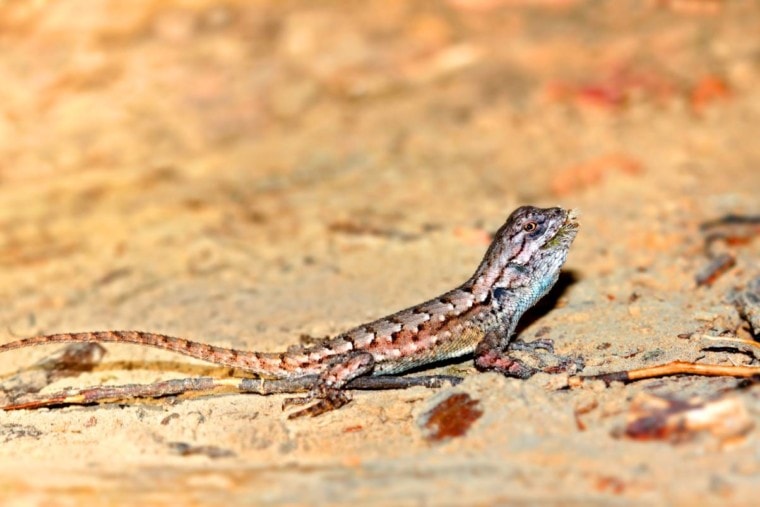
Lizards have a defense mechanism that allows them to lose their tail. If your lizard has suddenly dropped its tail, it can be a huge shock, especially if you do not know that lizards can lose their tail without it being caused by an injury.
Fortunately, lizards rarely die if they lose their tail, and they can grow back. If your lizard does happen to lose its tail, here’s what you should do.
Why Do Lizards Lose Their Tails?
Lizards primarily lose their tails to distract predators. This can help the lizard get away while the predator is distracted by the tail. Most lizards will lose their tail when they feel threatened or scared, and in the wild lizards will use this defense mechanism for survival. Lizards are one of the many species that are capable of self-amputation, and it can happen both in the wild and in captivity.
There is a weak line (typically referred to as a fracture plane) at a certain point of a lizard’s tail, usually near the end of the thickest part of the tail. When the tail is disturbed, such as when you try to pick up your pet lizard or a predator touches it, the muscles by the fracture plane pull away and sever the tail from the lizard’s body.
Sometimes when the tail is dropped from the lizard, it will continue to move, which helps to keep the predator occupied on the moving tail, giving the lizard a chance to flee. Interestingly, when a lizard loses its tail and it continues to move, this is because the nerves from the severed tail are still firing, sometimes for up to half an hour.
When a pet lizard is disturbed in captivity—usually if you try to handle them—it can cause them to lose their tails. This is because they want to defend themselves and something in their environment is causing them stress. Your lizard is unlikely to lose its tail if you are moving stuff around the enclosure or if your dog barks at them, but it can lose it if something falls on the tail or if you grab your lizard by the tail.

What To Do If Your Lizard Has Lost Its Tail
So, if your lizard has lost its tail and you don’t know what to do, you should start by doing the following:

Will Your Lizards Tail Grow Back?
Yes, some lizards can regrow their tails, but it can take months for the tail to fully regenerate. Some lizards cannot regrow their tails, such as crested geckos. This means that once your crested gecko loses its tail, it will only have a stub left. However, you should keep the tail clean until it heals.
Tail regrowth depends on several factors, such as the lizard’s diet and environment. During the healing process, make sure that you keep an eye on them and keep the tail wound clean to prevent an infection from occurring. The tail will regenerate through muscle satellite cells which repair damaged tissue.
Some lizards can only regrow their tails a certain number of times, and if they have lost their tails too many times, they will not be able to regrow them anymore. The tail will not look the same as the one the lizard originally lost, and it may be shorter and have a slightly different color than its original tail.
Can a Lizard Die from Losing Its Tail?
It is normal for lizards to lose their tail as a form of self-defense, and they rarely die from it. However, if the tail stub becomes infected or your lizard loses a lot of blood, then it is possible for them to die due to complications. In some cases, the tail stub can start to turn black, which is an indication of tail rot or necrotic tissue (dry gangrene) and treatment from an exotic veterinarian is necessary for this situation.
Conclusion
It is normal for lizards to lose their tails when they feel threatened, stressed, or have had something fall on their tail. Even though it can be stressful to have your lizard lose its tail, keep in mind that by keeping its enclosure and the tail stub clean during the healing process, your lizard can regrow the tail.
Once the tail has regenerated, it’s important to keep your lizard in a stress-free environment and provide them with the right diet, temperature, and level of humidity according to its species.
Featured Image Credit: Jason Patrick Ross, Shutterstock









